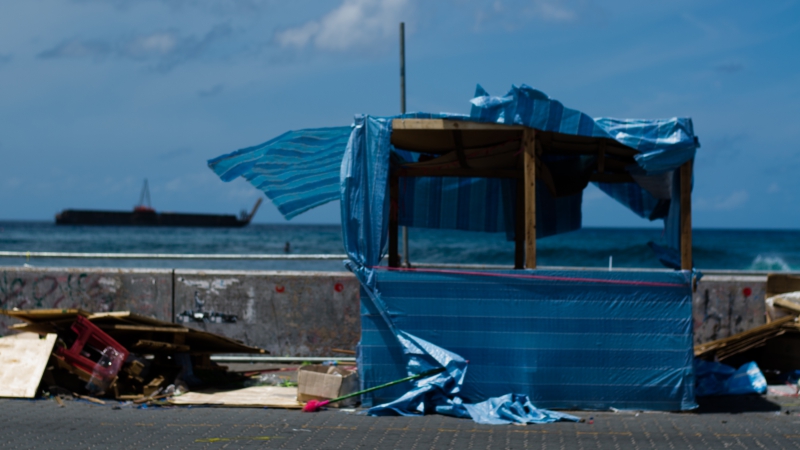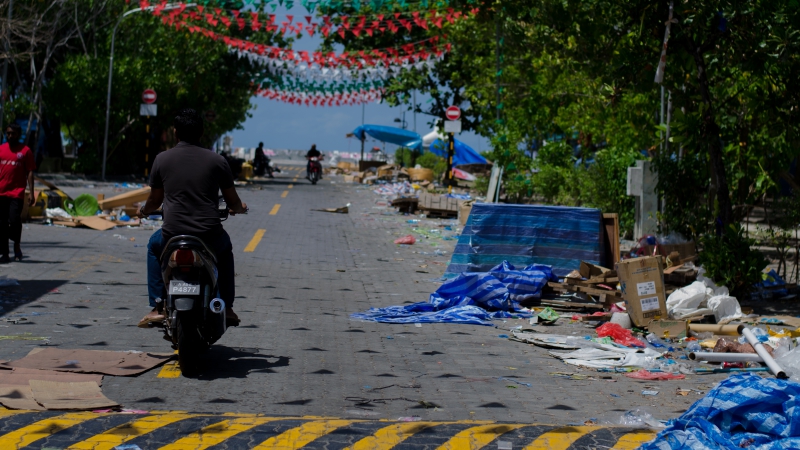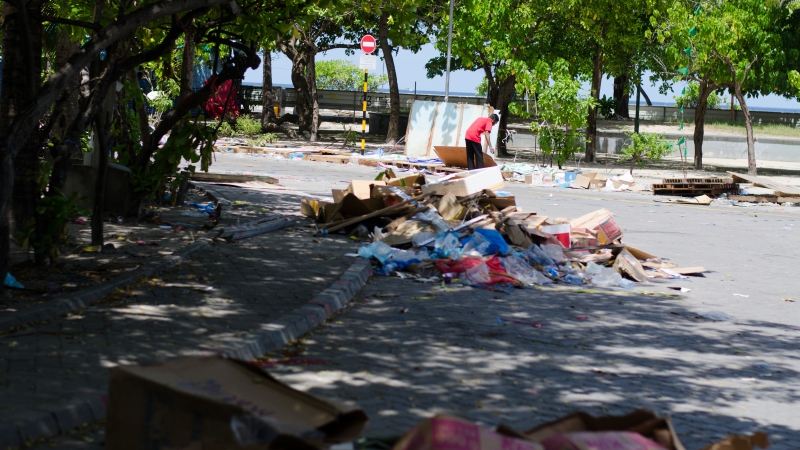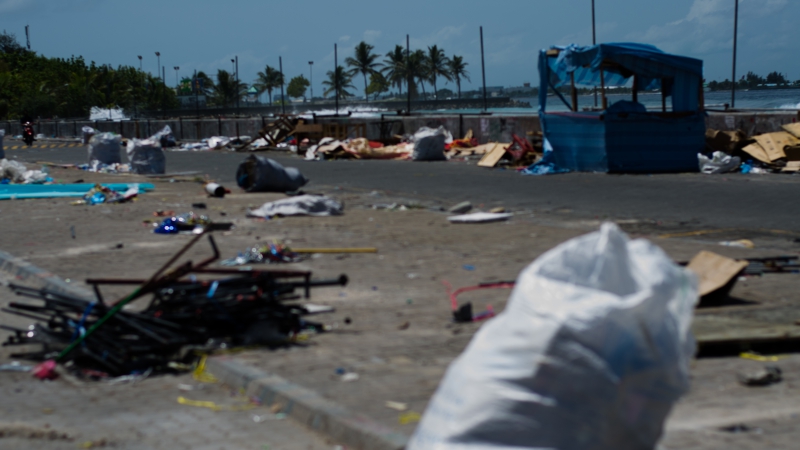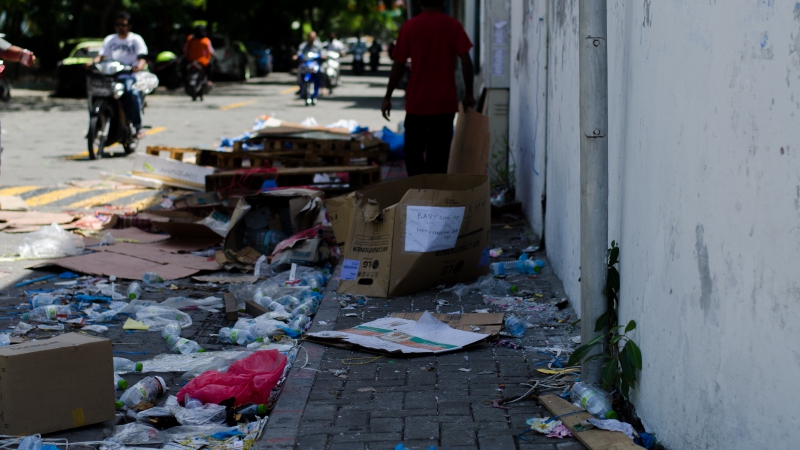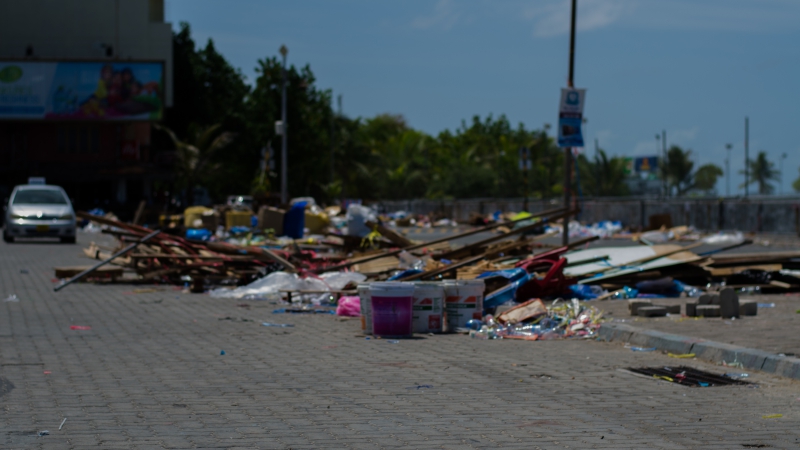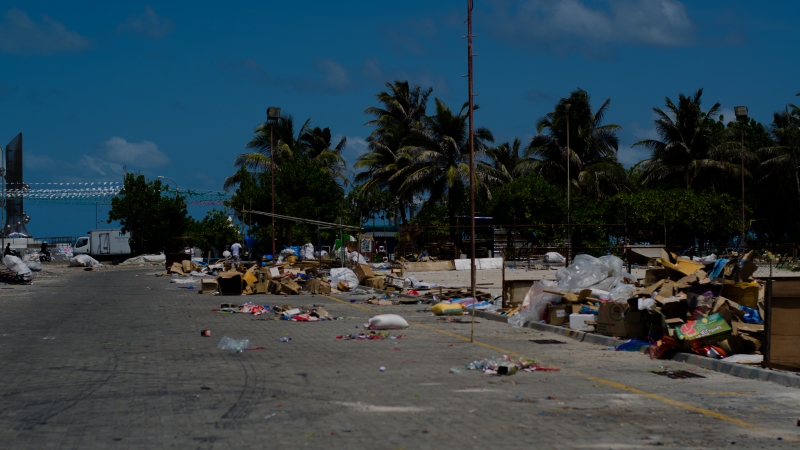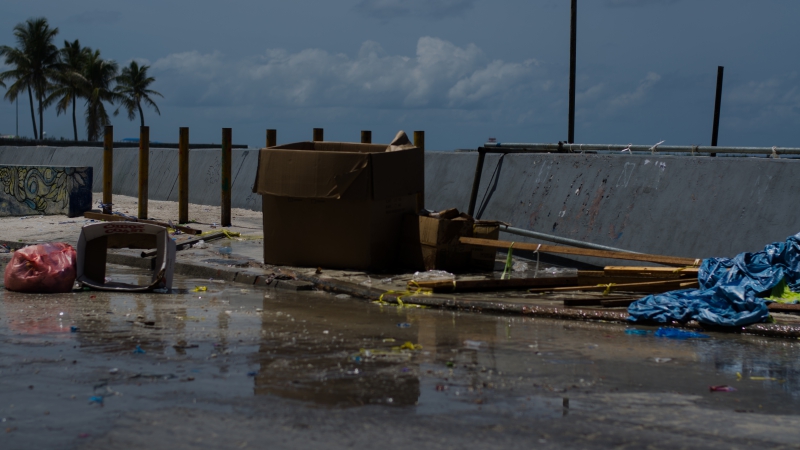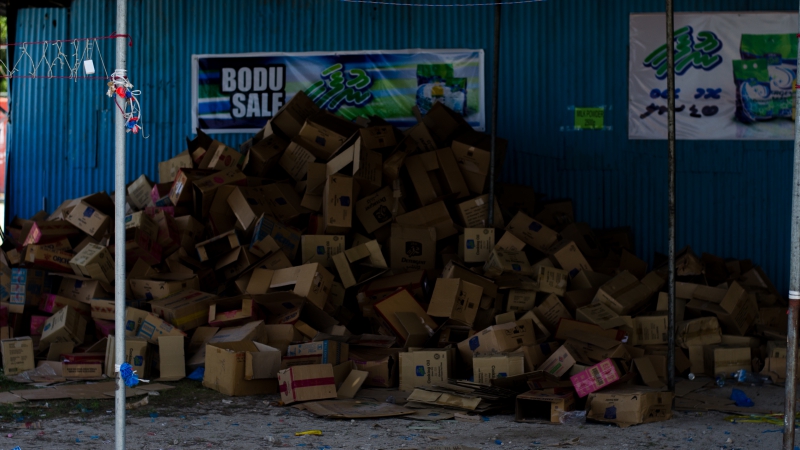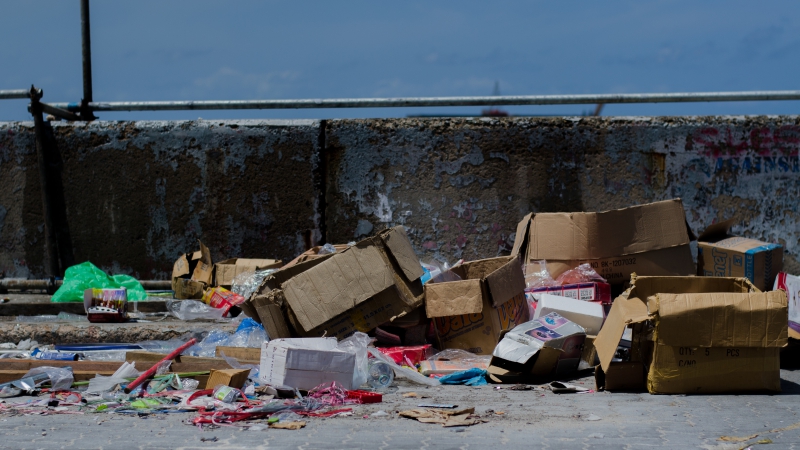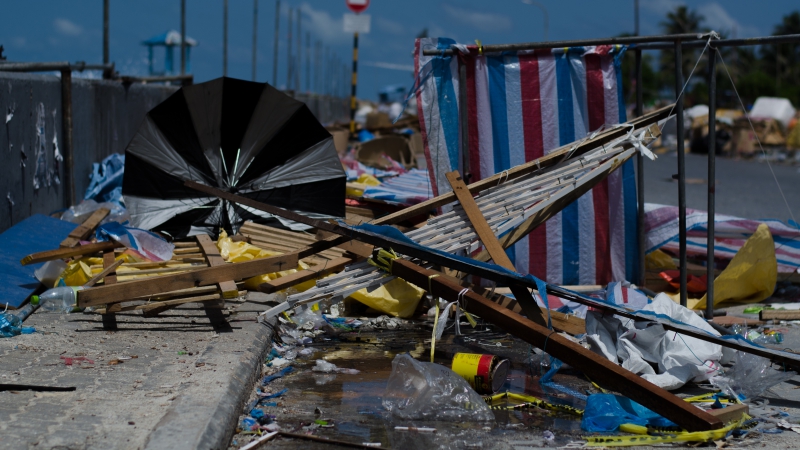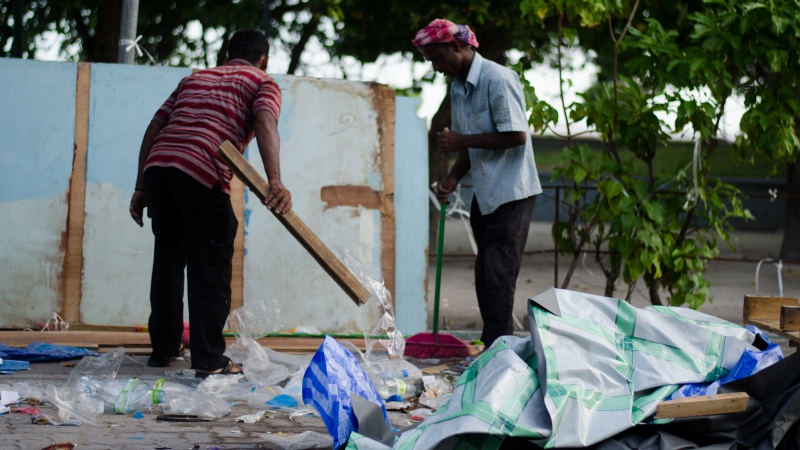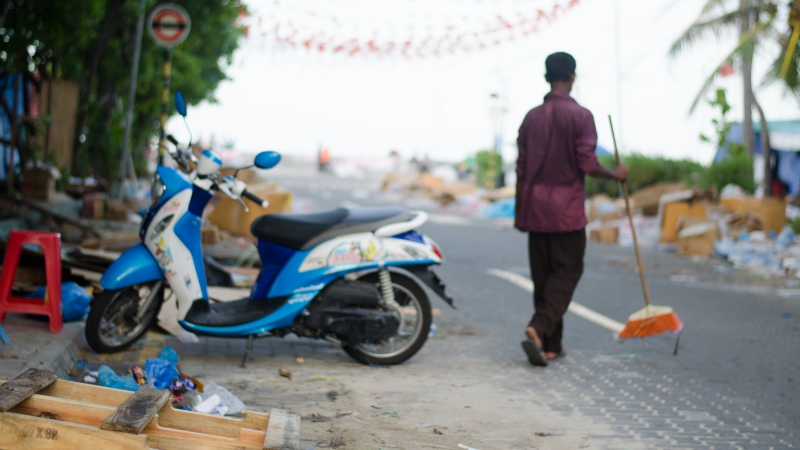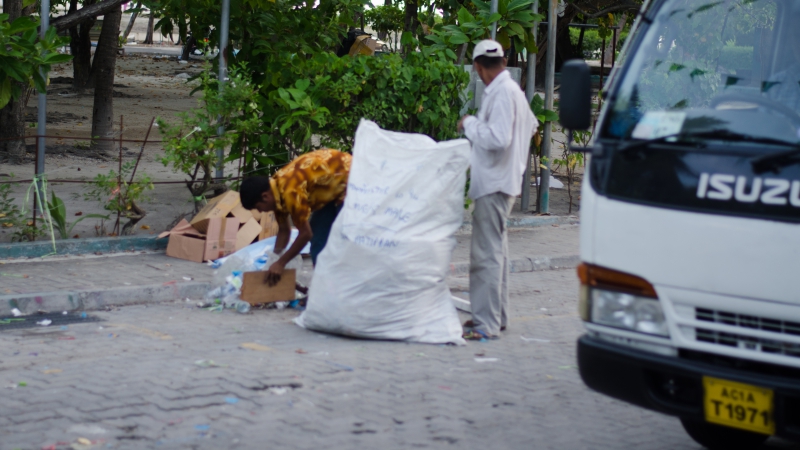The Maldives National Chamber of Commerce and Industries (MNCCI) has accused senior politicians of trivialising the severity of the country’s economic problems, claiming parties are addressing financial concerns with negative slogans rather than actual policies.
The concerns were raised as the government-aligned Progressive Party of Maldives (PPM) claimed over the past week that foreign investors were now turning away from the Maldives due to concerns about political stability and safety in the country.
“Bad shape”
While accepting the present “bad shape” of the Maldives economy, the chamber of commerce criticised negative campaigning on the economy by senior figures in the last two governments – arguing they had done little to address an ongoing shortage of US dollars and a lack of investment banking opportunities and arbitration legislation in the country.
On Saturday (June 29), PPM presidential candidate Abdulla Yameen was quoted in local media as expressing concern that foreign businesses were shunning the Maldives in favour of financing projects in other countries in the region.
“With our present woes no one wants to invest here. They are looking at Seychelles and Caracas. No foreign investor wants to come to the Maldives,” Haveeru reported him as saying.
The concerns were shared by Yameen’s running mate, former Home Minister Dr Mohamed Jameel Ahmed, who told a campaign rally in Raa Atoll days earlier that the PPM was the only party able to secure peace and safety in the country required to boost foreign investor confidence.
Dr Jameel was dismissed as home minister by President Dr Mohamed Waheed in May this year after announcing his decision to stand as running mate for rival candidate Abdulla Yameen in September’s election.
Minivan News was awaiting a response from Dr Jameel about the party’s economic policies at time of press.
While MNCCI Vice President Ishmael Asif accepted that political stability was a key challenge to building foreign investor confidence, he added that senior political figures such as Dr Jameel had failed to implement much needed legislative reforms to aid investment while in power.
Asif argued that Dr Jameel was not the only government figure in the last five years guilty of failing to try and boost investor confidence in the Maldives.
“We are not happy. People are using the economy as a campaign slogan. All parties are looking to come to power and they will do or say anything to be in power,” he said.
Asif expressed particular concern over various parties’ using the country’s present economic difficulties to score points during campaigning without offering their own solutions.
“The economy is not healthy right now. We do not hear any solutions from these people. We want to hear positives about will they change,” Asif said.
“What exactly did Jameel do for the economy? What did Anni [former President Mohamed Nasheed] do? What also did Dr Waheed do? What did any of them do?”
Economic record
Asif argued that ahead of the upcoming presidential election scheduled for September, it was hugely important that voters evaluated all candidates on the basis of their recent economic record.
He said that the Maldives’ first multi-party democratic election in 2008, the country had failed to implement a number of legislative reforms required to provide greater freedom to foreign investors.
According to Asif, key economic reforms lacking included the establishment of investment banks to encourage foreign parties to borrow domestically, and arbitration law to ensure that investments were protected in the country’s courts.
He said that with rival parties and President Waheed all campaigning ahead of this year’s election, there appeared to be little consensus to try and deal with “huge issues” such as the dollar shortage.
Accountability
Asif said he believed that the majority of voters had failed to properly hold their leaders to account since the democratic transition in 2008, comparing the nation’s democratic freedoms over the last five years as being comparable to “a child with a new toy”.
“We have not really understood democracy here. Many have not grown up with the right to question that comes with democracy, so we don’t know how to test the capacity of our leaders,” he said.
Raising concerns that the loudest and most controversial figures had dominated the country’s political arena since 2008, Asif said fears of a lack of accountability were a significant difficulty for the economy.
“Take the Ministry of Trade for example. There is a huge issue over the supply of US dollars, yet instead everyone is focused on their own parties. There is no mandate to address this,” he said.
Opposition concerns
The opposition Maldivian Democratic Party (MDP) meanwhile rejected criticisms over its foreign investment record, claiming it had attempted to introduce a raft of economic reforms for the economy while in power, before the government was controversially changed on February 7, 2012.
The present government, made up entirely of former opposition parties, came to power after former President Mohamed Nasheed resigned from office during a mutiny by sections of the police and military.
MDP MP and Spokesperson Hamid Abdul Ghafoor said that it was hypocritical for the PPM, or any other party serving in the present government, to raise concerns about political stability, given that they had intentionally deposed the country’s first democratically-elected government.
On an economic level, Ghafoor claimed the former MDP government had sought to introduce an economic reform package aimed at encouraging investment not only in the country’s tourism industry, but in a wider number of sectors such as energy, communications and infrastructure.
He said that this investment focus had been seen in the introduction by the former administration of direct taxation, the restructuring of government finances and the reduction or elimination of import duties on a wide range of goods.
Before Nasheed came to power, Ghafoor said the country had been managed much like a “corner shop” – with no mechanisms to attract and keep investors in the country.
He argued that one legacy of this approach to foreign investment could be still be seen in the country’s courts, which he continued to remain a “mess”.
Judicial criticisms
Before his resignation, former President Nasheed controversially detained the Chief Judge of the Criminal Court Abdulla Mohamed, in a move he claimed was needed to prevent him from continuing to rule on cases while charges of misconduct against him were investigated.
In November 2011, the Civil Court ordered the Judicial Service Commission (JSC) to take no action against the chief judge over an investigation into his alleged misconduct until the country’s court reached a verdict in a case filed against him. The Civil Court case preventing action against Abdulla Mohamed was filed by the chief judge himself.
In the build up to the judge’s arrest, Nasheed continued to raise concerns over allegations of perjury and “increasingly blatant collusion” between senior judicial figures and politicians loyal to the former autocratic President Maumoon Abdul Gayoom.
Since Nasheed’s resignation, NGOs and independent experts including UN Special Rapporteur for the Independence of Judges and Lawyers, Gabriela Knaul have expressed concern over politicisation within the country’s court system.
Accusing the PPM – as part of the present coalition government – of being directly involved in instigating a mutiny within the country’s security forces prior to the change of government last year, MDP MP Ghafoor alleged the party was also culpable for ruining interest in foreign investment.
He accused PPM presidential candidate Abdulla Yameen in particular of using President Waheed as a “pawn” last November to abruptly terminate a US$511 million contract with India-based GMR to develop and manage Ibrahim Nasir International Airport (INIA).
Indian infrastructure giant GMR recently filed a claim for US$1.4 billion in compensation from the Maldives, following the government’s sudden termination of its concession agreement citing “wrongful termination” and loss of projected profits.
Meanwhile, the PPM accused President Waheed of ignoring the advice of his coalition government by terminating the agreement.
Waheed’s allies hit back by accusing the PPM of making “contradictory statements” regarding the decision to terminate GMR’s concession agreement, claiming the party’s senior leadership tried to terminate the deal without discussion or following due process.
The MNCCI claimed in September last year that legal wrangling between the government and India-based developer GMR over the multi-million dollar airport development contract was not anticipated to harm confidence in the country’s “challenging” investment climate.
Likes (1)Dislikes
(1)Dislikes (0)
(0) 
